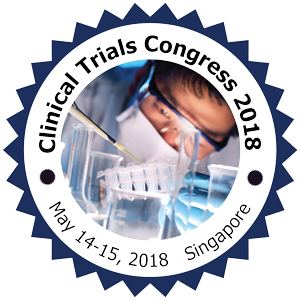
Qiufang Chen
China Pharmaceutical University , China
Title: High cholesterol in lipid rafts reduces the sensitivity to EGFR-TKIs therapy in non-small cell lung cancer
Biography
Biography: Qiufang Chen
Abstract
Overcoming EGFR-TKIs resistant which has the initial enthusiasm over substantial clinical responses is a formidable challenge on nowadays. That cancer cells need excess cholesterol to maintain a high level of proliferation is well accepted, however, whether cholesterol in lipid rafts associates with EGFR-TKI resistance in non-small cell lung cancer (NSCLC) harboring EGFR mutations has not been fully elucidated. In this study, we used PC-9, PC-9/GR (PC-9 cells with gefitinib-resistant), A549, H1650 and H1975 cell lines to explore the relationship between cholesterol and EGFR-TKI resistant. Cholesterol level was measured using the Amplex® Red Cholesterol Assay Kit. Methyl-β-cyclodextrin (MβCD) was used to deplete cholesterol, and cytotoxicity was measured by MTT assay. Western bolt was used to detect the level of EGFR and its downstream signaling phosphorylated proteins. The affinity of EGFR-TKI and EGFR was determined by immunofluorescence and flow cytometry. We showed that cholesterol level in lipid rafts in gefitinib resistant NSCLC cell lines was remarkably higher than gefitinib sensitive cell line, and depletion of cholesterol increase gefitinib sensitivity. Furthermore, Cholesterol-depleted enhanced gefitinib inhibit phosphorylation of EGFR, Akt-1, MEK1/2 and ERK1/2 and these were reversed in cholesterol add-back experiments. Gefitinib resistant cell lines showed high affinity of gefitinib and EGFR when cholesterol was depleted. Therefore, targeting cholesterol combined with EGFR-TKI is potentially a novel therapeutic strategy to overcome gefitinib resistance. The combination of lovastatin and gefitinib is a promising strategy for gefitinib resistant patients.

